From the Assistant Principal
Adele Brice

From the Assistant Principal
Adele Brice
Hi everyone,
For this edition of the newsletter, I am sharing the following information with you:
Policy Update
Student Dress Code Policy
Our Student Dress Code Policy has been reviewed by the Education Sub Committee and ratified at the May School Council Meeting. To review this policy you can click the link on the policy title.
The purpose of the Student Dress Code is to outline Wonga Park Primary School’s requirements for student dress and appearance and to provide information about uniform purchase and support, dress code implementation and exemption processes.
The Student Dress Code aims to:
New uniform additions
We are also excited to announce that school beanies are now available from PSW. The beanies look smart and are a lovely addition to our uniform. This uniform item is not to be worn in the classroom, but outside in the school grounds. Should you purchase a beanie for your child/ren, we encourage you to name them, there no doubt will be many in the school yard. PSW have also informed us that they have in stock puffer jackets in larger sizes with the Wonga Park PS logo.
The Dogs at School Policy has also been updated. Please ensure that you read and are familiar with this policy.
Late arrivals/early leavers
We understand that sometimes late arrivals are unavoidable. Class teachers mark rolls in the morning from 8.50-9.00am. If your child arrives after 9am, parents will need to ensure that they support their child to sign in at the office. The student needs to then take a late arrivals to the classroom with them, this indicates to the teacher that the child has been signed in through the office.
If you collect your child early, you need to let our office staff know, they will then call down to the child's classroom, the child will meet their parent at the office.
Should parents visit the school during the day for any reason, they must sign in at the office and collect a visitors sticker.
Partnering with Parents
Child Safe
Childsafe Volunteer Training
As you are no doubt aware we are mandated (without exemption) to provide training for all volunteers working in our school. It's a requirement that our staff and volunteers are equipped with knowledge, skills and awareness to keep young people safe through ongoing education and training. Training is required to be updated annually.
All volunteers working in all school will need to have completed annual training prior to working with students at our school.
There is one remaining Volunteer Training Session on offer for Term 2. Please be aware of when your annual training expiries and join one of the online sessions if applicable. The details for the sessions are listed below, you can also find the link on the Sentral Parent Calendar.
Tuesday 4th June 5.15-5.45pm (online)
https://eduvic.webex.com/eduvic/j.php?MTID=ma799d08a7644b999cebfe9f02112349d
Meeting number: 2653 898 7549
Password: bmEBiP6va78
Class Messenger/What's App Groups
Messenger/What's App Groups are informal groups where parents can share information related to their child's grade. When contributing to the conversation in this group, please observe the following:
Cyberbullying
The eSafety Commissioner shares the following information regarding Cyberbullying.
Cyberbullying of children is when someone uses online content or communication to seriously humiliate, seriously harass, seriously intimidate or seriously threaten a child or young person under the age of 18.
It can take many forms including sending abusive messages, hurtful images or videos, nasty online gossip, excluding or humiliating others, or creating fake accounts in someone’s name to trick or humiliate them.
Online bullying can have a devastating impact on young people, whose online life is a key part of their identity and how they interact socially.
You are encouraged to access the Cyberbullying article on the eSafety Commissioners website, it provides further information about:
Cyber Safety Project
The 2024 Parent Webinar Series are available for our community as we partner with the team. The upcoming webinars are listed below for your reference, you can sign up for the sessions using this link
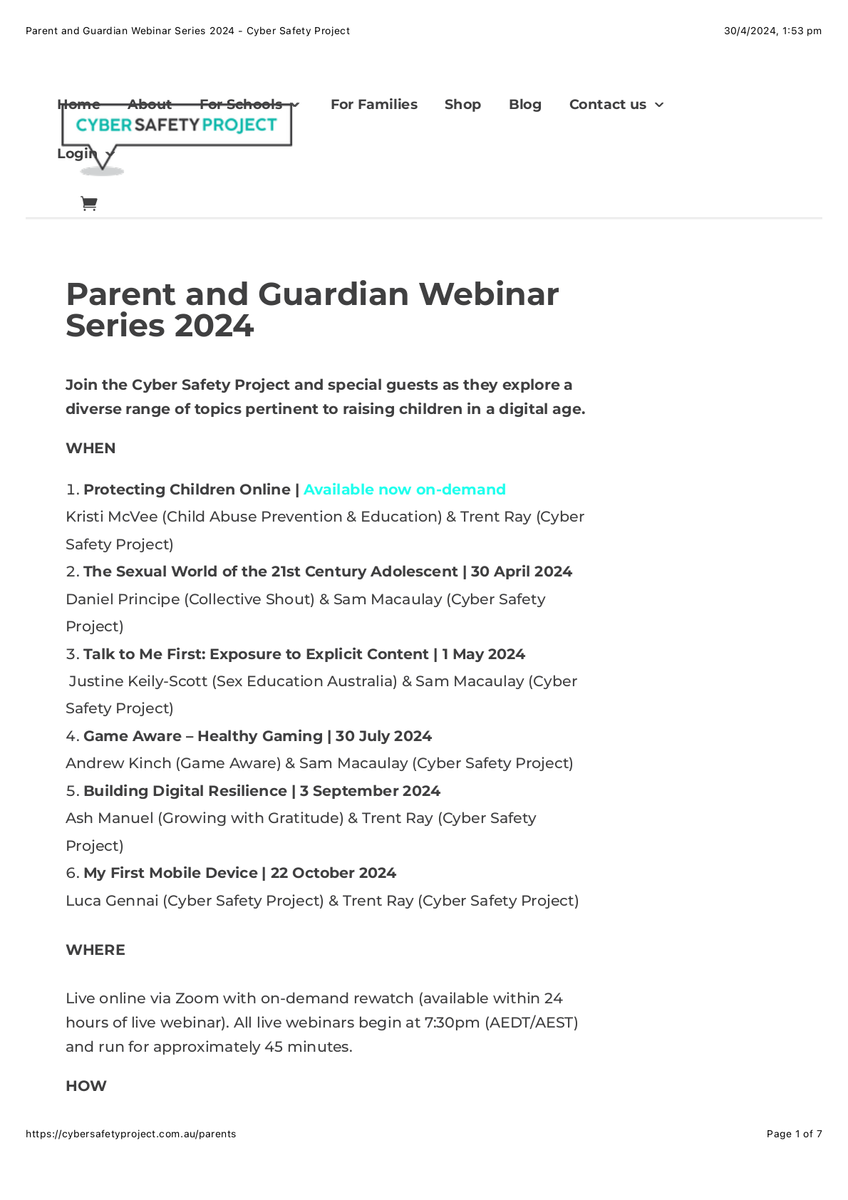
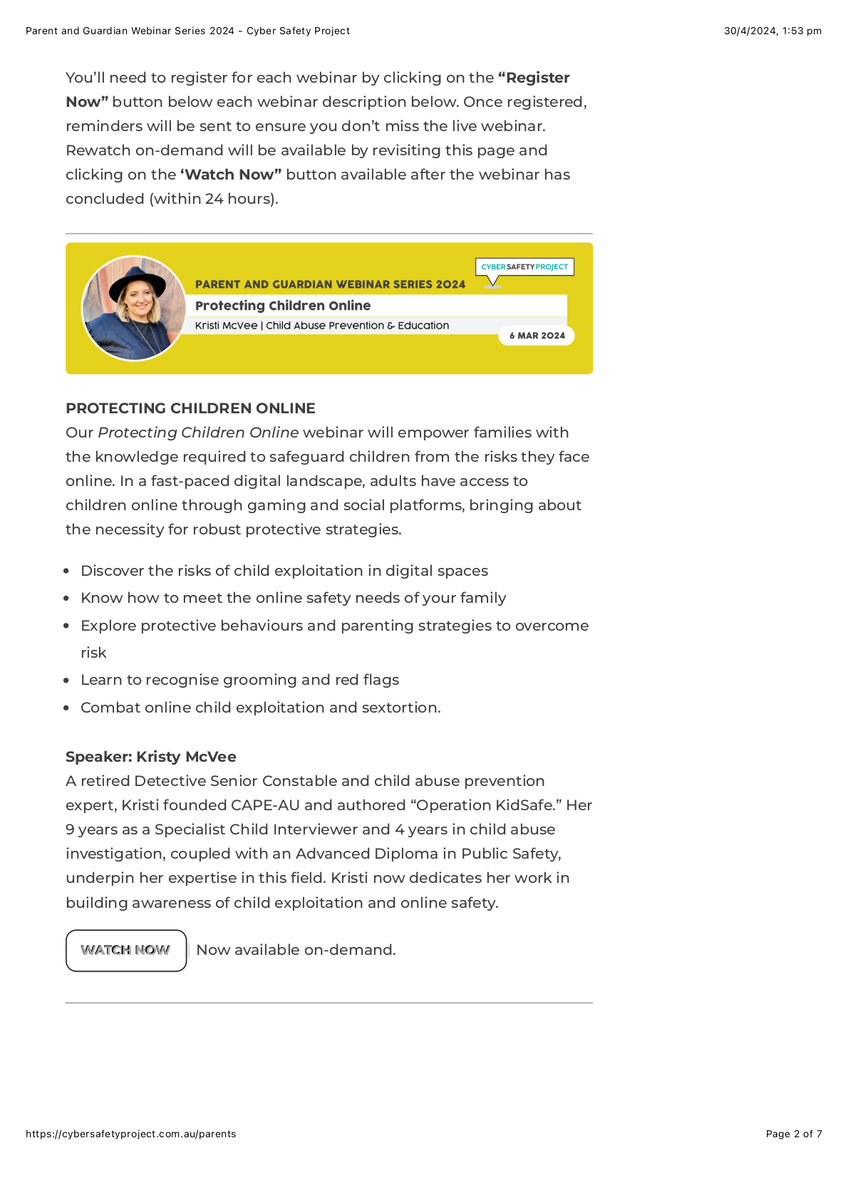
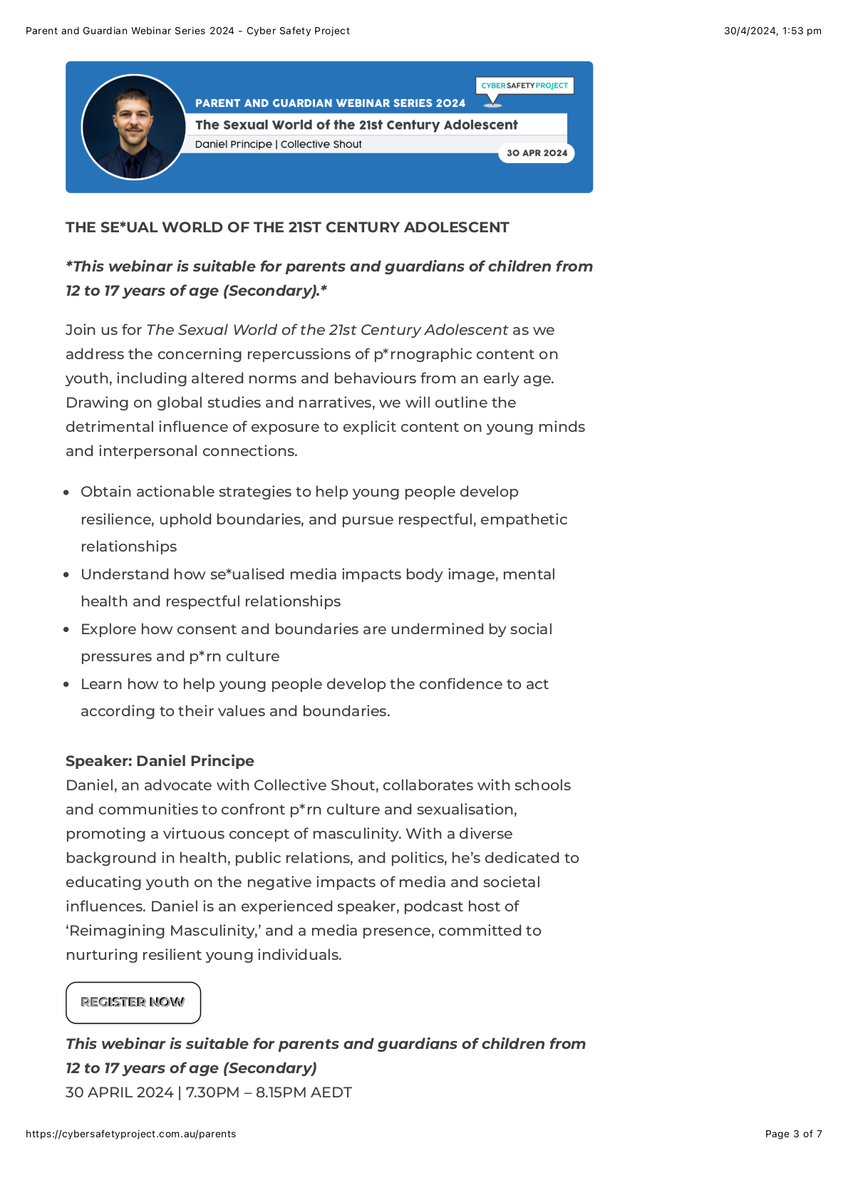
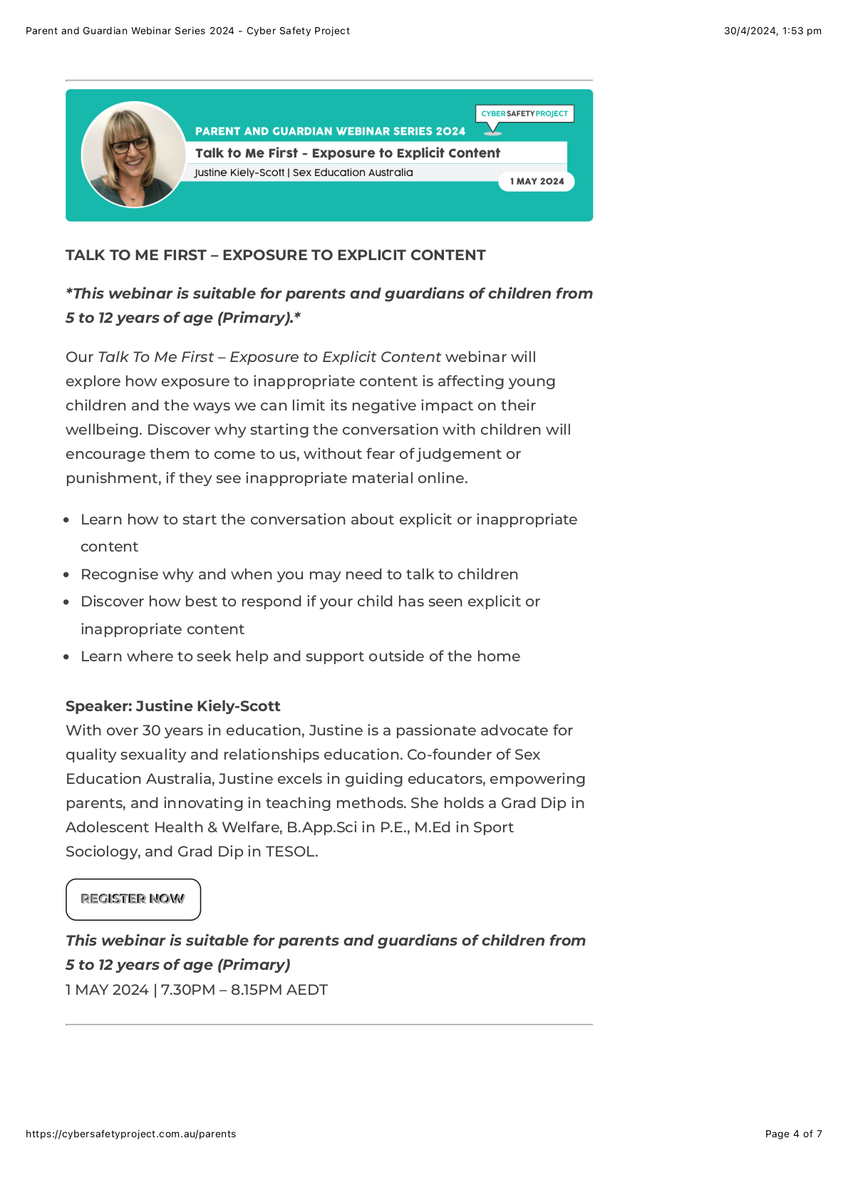
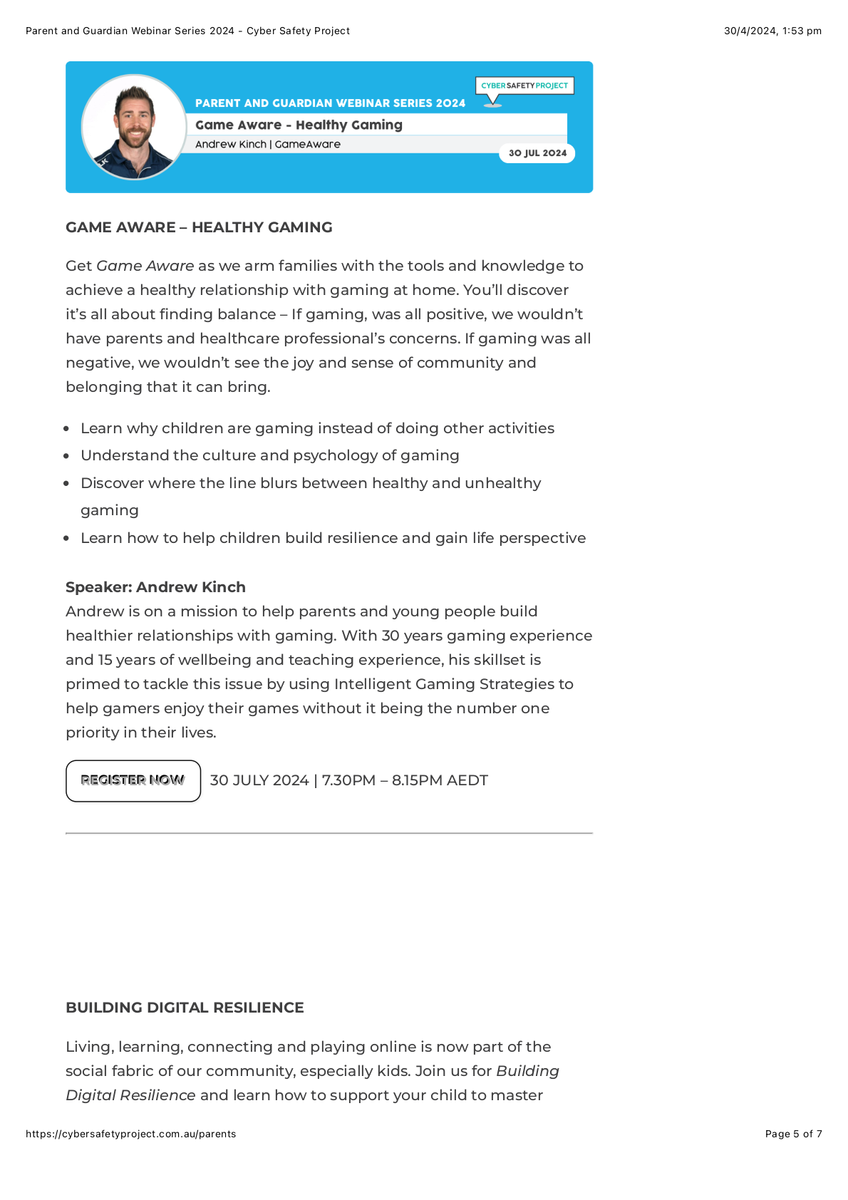
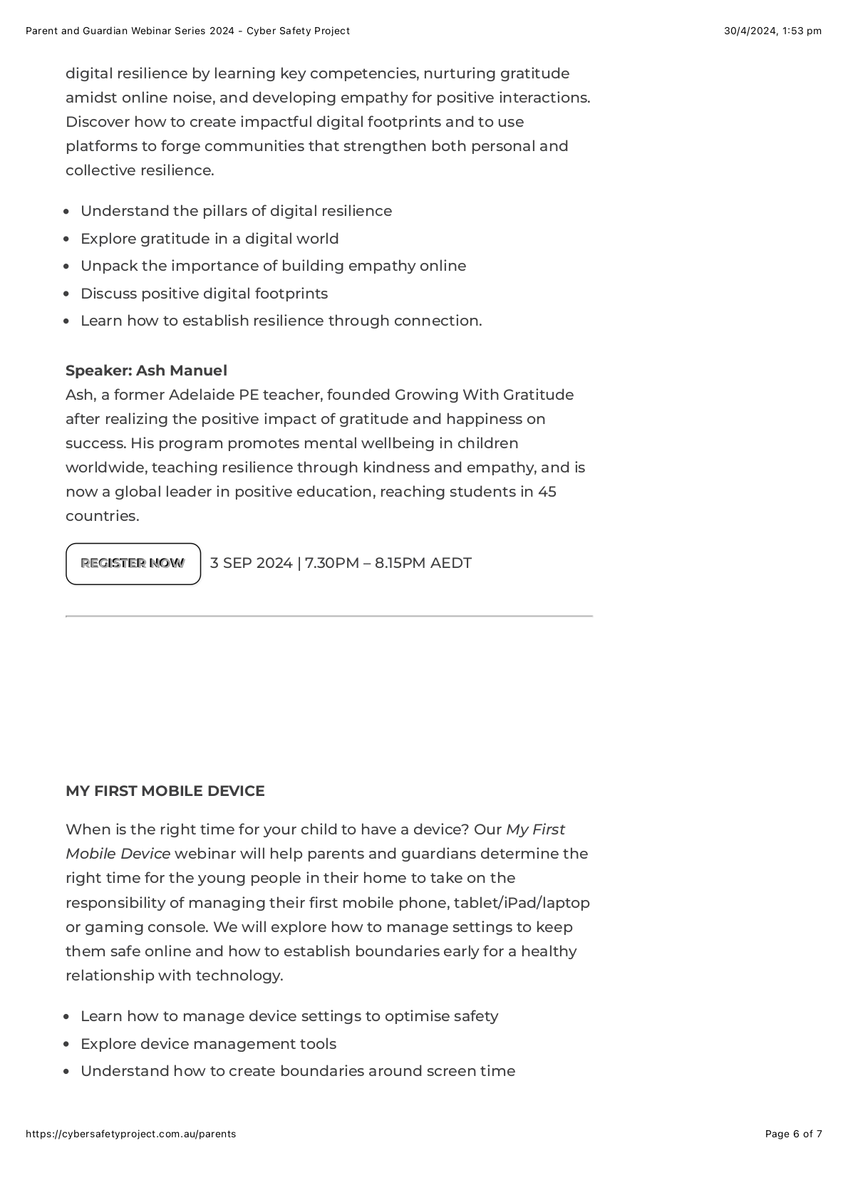
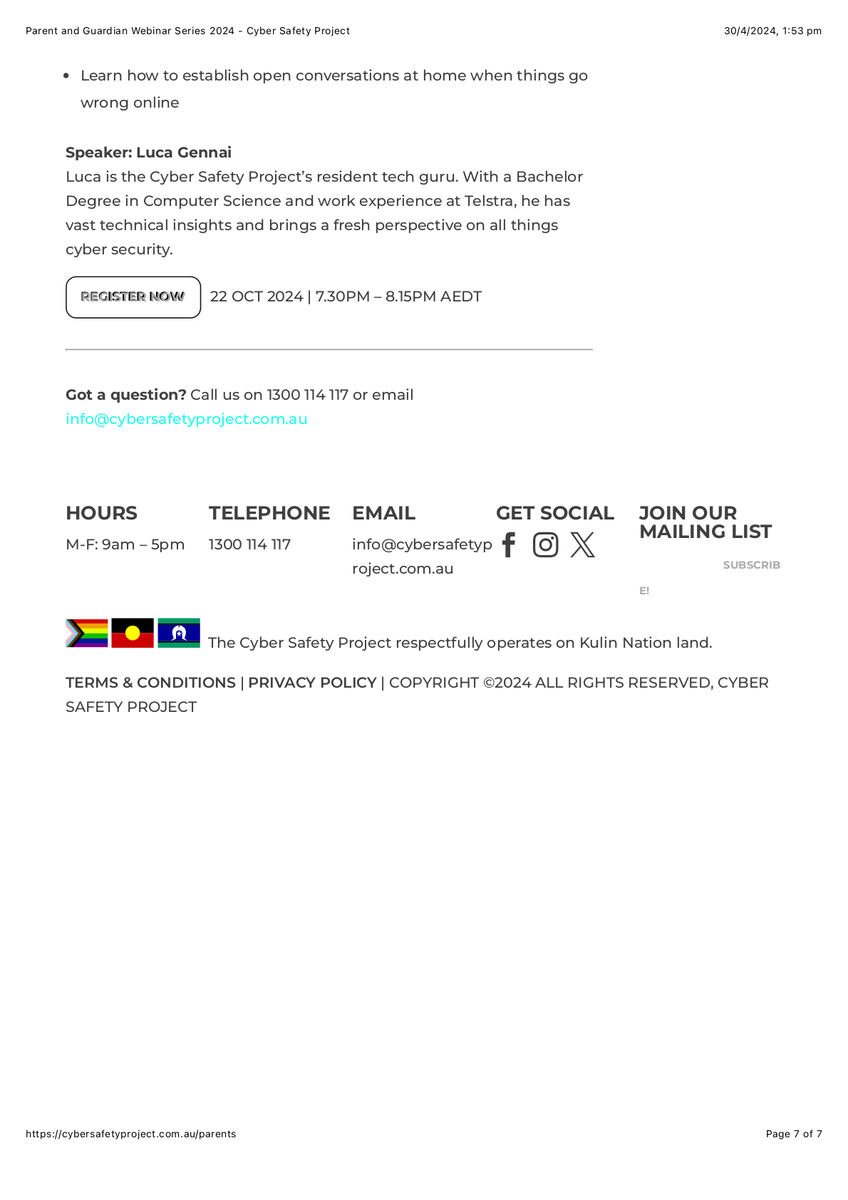







Parent webinars - eSafety Commissioner
eSafety 101: How eSafety can help
This webinar provides an overview of the eSafety Commissioner, and supporting programs and resources for parents and carers, children and young people.
It's suitable for parents and carers of children and young people in primary and secondary school.
Remaining Term 2 dates (Australian Eastern Standard Time)
Wellbeing and digital technologies
An overview of strategies to protect, respond to and support your child online. This webinar will focus on the digital skills to protect and support young people’s mental health and wellbeing online.
It's suitable for parents and carers of children and young people in secondary school.
Remaining Term 2 dates (Australian Eastern Standard Time)
Consent and online boundaries: how to support your primary-aged child
As children begin to navigate the online world, they need to know how to make decisions around consent and boundaries. This webinar will outline strategies for parents and carers, as well as support those hard-to-have conversations.
It's suitable for parents and carers of children in primary school.
Remaining Term 2 dates (Australian Eastern Standard Time)
Setting your child up for success online
An overview of having conversations about tech and online interaction, putting boundaries and rules in place, using parental controls, and monitoring your child online.
It's suitable for parents and carers of children primary school.
Remaining Term 2 dates (Australian Eastern Standard Time)
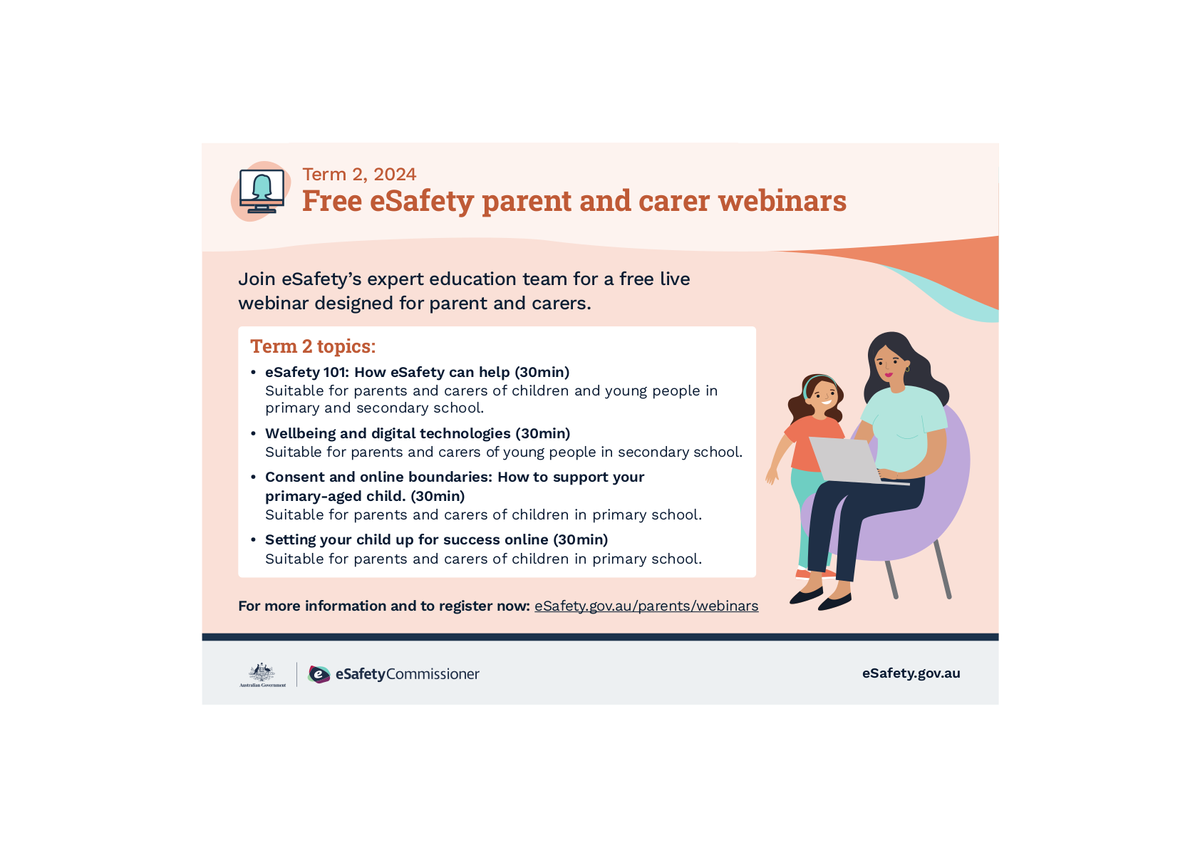

Partnering with Parents
Raising Children shares wonderful information to support parents raising children. The organisation shares information regarding Schools, teachers and parents: Building strong relationships, with parent/teacher/student conferences later in the term, it's timely the information below from their website is shared.
Parent-teacher interviews at primary school: what to expect
Throughout your child’s time in primary school, you might be asked to go to parent-teacher interviews or conferences.
These interviews are usually short meetings – about 10-15 minutes – between you and your child’s teacher or teachers. Every parent is invited to attend at least one interview a year. At some schools, children also take part in interviews.
Your child’s school will probably use its parent portal or newsletter to tell parents that interviews are coming up. They’ll ask you to make an interview time with the teacher using an online booking system or sign-up sheet at school.
Interviews might be held during school hours, before or after school, or in the evening. It’s good to make a time when both parents can go along, if you can. If you can’t manage any of the available times, you can usually call the school to arrange another time.
It’s important to be on time for parent-teacher interviews. But be aware that teachers might be running late because previous interviews have run over time.
Why it’s important to go to parent-teacher interviews
Parent-teacher interviews give you a great opportunity to:
If you don’t have any particular concerns, you might wonder whether it’s worth going to parent-teacher interviews. But going along is one way to show your child that you’re interested in their learning and what’s happening for them at school.
Of course, if you do have concerns, it’s a chance for you to raise them with your child’s teacher if you haven’t done that already.
**You might feel a bit nervous about going to parent-teacher interviews. That’s normal. It might help to know that teachers can feel the same way, especially if there are difficult or sensitive issues to discuss, or if they’re not used to giving parent-teacher interviews.
What to talk about at parent-teacher interviews
To get the most out of parent-teacher interviews, it helps to be well prepared.
Interviews might be held early in the school year so the teacher can find out more about your child. For this kind of interview, it’s a good idea to think about the information you want to share with the teacher. For example, you might want to talk about your child’s strengths or interests, or areas of learning where your child might need more support.
Interviews for children in primary school are also often held around the time school reports come home. One of the first things you can do for this kind of interview is read your child’s school report carefully and note down anything you want to ask about. You can also use interviews at this time of year to share feedback about your child’s experiences at school.
It can help to take a list of questions with you to interviews so you remember what you want to talk about. The interview time tends to pass quickly.
If you’re not sure what to talk about, here are some questions to get you started:
If you don’t get through everything you want to discuss, you might need to arrange another meeting with your child’s teacher. If your child is present during the interview, you might want to request a separate meeting without your child to discuss any concerns.
Talking with teachers at parent-teacher interviews: tips
Being open and friendly will set you up for positive communication with the teacher. You can show that you respect what the teacher is saying by listening carefully and trying not to become defensive, even if you disagree with feedback about your child.
It’s important to get as much out of the meeting as you can, so it’s OK to be direct when you need to be. For example, you can ask the teacher to explain, clarify or say more if you don’t understand what’s being said.
If you have a concern about something, try to be specific and avoid blame. Combining a request with understanding will usually help. It can also help if you mention something positive at the same time. For example, ‘Freya says that when you explain things it makes it clearer to her. Would you mind if she asked you to take more time to explain when she’s learning something new?’
If you have to discuss problems with the teacher, it helps to come ready with some possible solutions, or at least some positive and practical suggestions. Be willing to listen to the teacher’s ideas too.
If you make any decisions, it’s good to agree on who will follow up and when.
Should children go to parent-teacher interviews?
Some primary schools have student-led conferences instead of parent-teacher interviews. In this case children are expected to attend and lead the discussion about their work.
If you want your child to be part of the interview and this isn’t what the school usually does, it’s best to ask the teacher about it before the interview.
You might prefer to keep the meeting between you and the teacher, especially if you feel the focus of the interview will be on things your child is struggling with. That way you can talk to your child’s teacher freely and can discuss the meeting with your child afterwards.
Arranging parent-teacher meetings at other times
If you have any concerns about your child’s social or academic development, you don’t have to wait for a formal parent-teacher interview to talk about them.
Your child’s teacher will be happy to arrange a meeting with you to discuss any issues. You just need to contact the school to make an appointment. Some teachers are also happy to be contacted via their school email account.
Parent-teacher interviews are often held in open or public areas. If you know that you want to raise a sensitive or confidential topic with a teacher, it might be a good idea to arrange a separate meeting.
You can also arrange a separate meeting if you want to discuss something that might take longer than your allocated 10-15 minutes. For example, you might want to tell your child’s teacher about something going on at home that could be affecting your child’s behaviour or academic performance, like the death of a grandparent or a parental separation.
Informal contact with teachers
If you have opportunities to meet your child’s teacher at information nights or other school events, it can be a good time to socialise and build relationships. This can help when you meet for formal parent-teacher interviews.After the parent-teacher interview
You and the teacher need to follow up on any decisions or solutions that you agree on at the interview. For example, you could arrange a second meeting or a follow-up phone call in a month’s time.
If you agree to try some new strategies, a follow-up discussion gives you both the chance to check how well they’re working. If you need to, you can adjust them.
Diversity and Inclusion
Inclusive education means providing a learning environment where all students, regardless of their abilities, backgrounds, or needs, are welcomed, valued, and supported. This approach ensures that every student has access to quality education and the necessary resources to succeed. It involves adapting teaching methods, curricula, and school activities to cater to diverse learning styles and needs. Inclusive education promotes equality, reduces barriers to participation, and fosters a sense of belonging, preparing students for a diverse and inclusive society. The Department of Education shares the following information;
Students with a disability policy
The Students with a Disability school policy gives schools a clear definition of inclusive education and what the legal obligations are for supporting students with disabilities. The policy is part of the inclusive education agenda focused on improving outcomes for students with disabilities.
Defining 'students with disabilities and additional needs'
The Disability Discrimination Act 1992 (Cth) defines the term ‘disability’ as referring to physical, intellectual, mental and medical impairments, including disorders that result in a person learning differently.
This means that the policy applies to all students with a disability, not just those who are eligible for support under targeted programs such as the Program for Students with Disabilities.
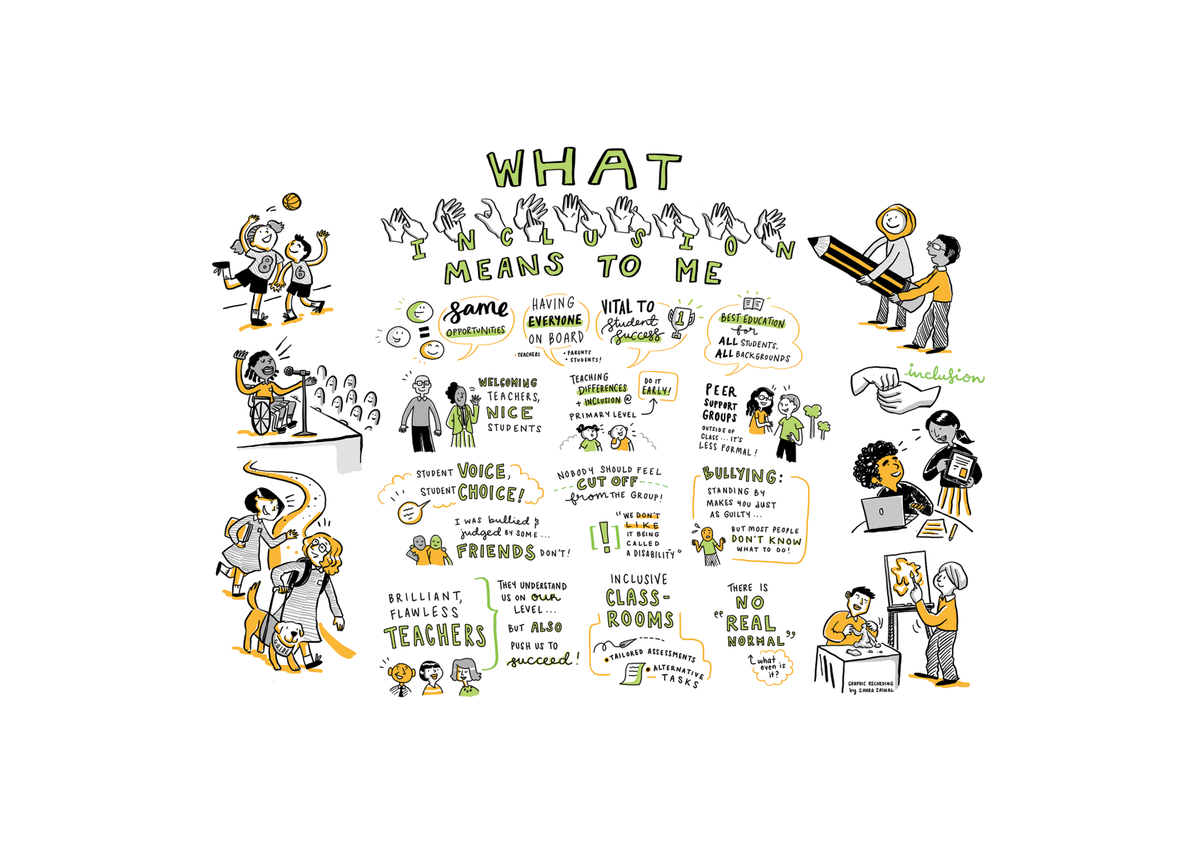

Please do not hesitate to chat with me in regards to anything I have shared with you in this edition of the newsletter.
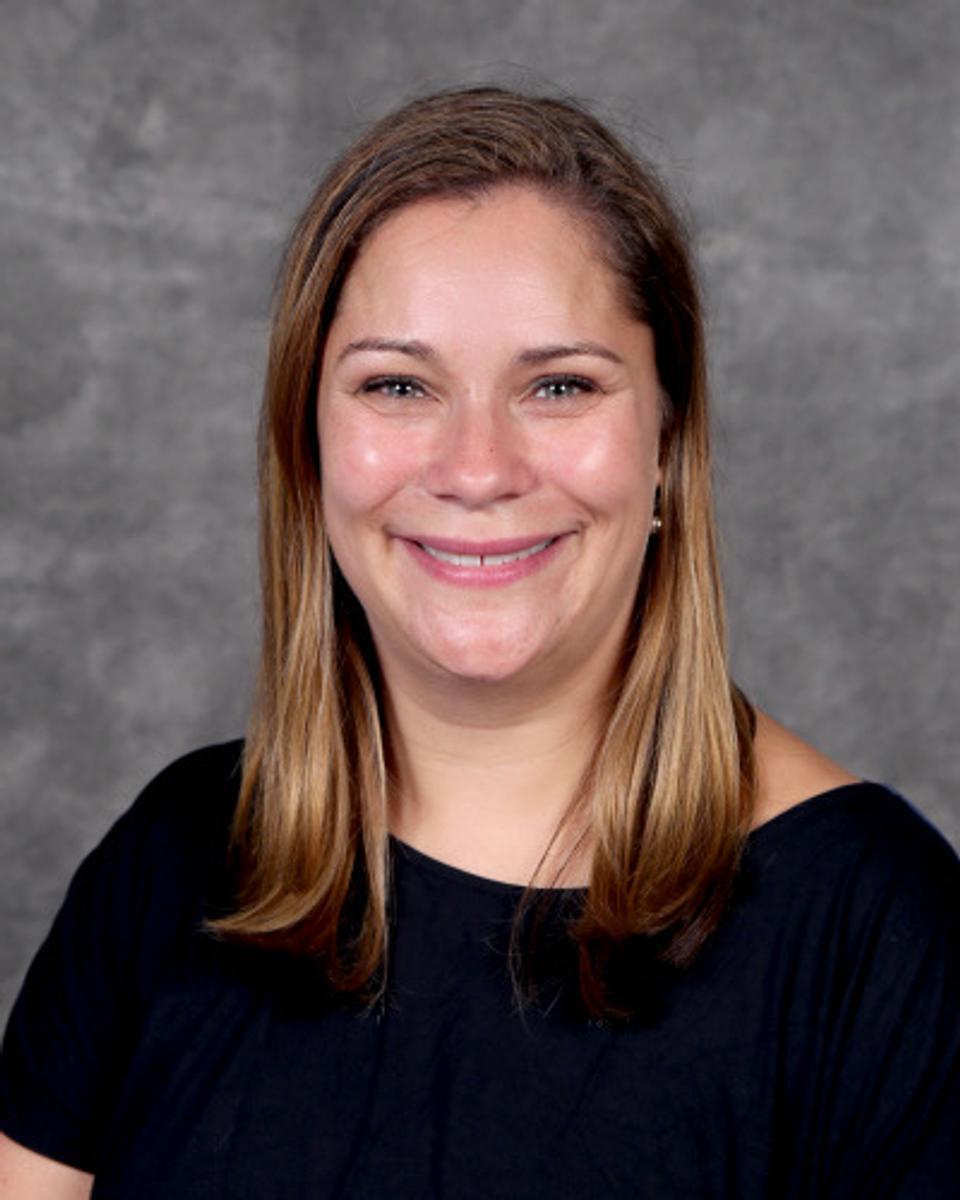

Adele Brice - Assistant Principal